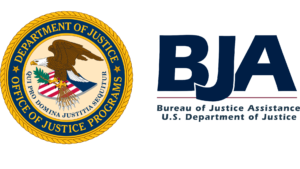Rhode Island Justice Reinvestment Initiative
In 2015, Rhode Island had the country’s second-highest probation population rate, with high probation revocation rates and lengthy probation terms contributing to an increasing prison population. To address these challenges, Rhode Island requested support through the Justice Reinvestment Initiative (JRI). As a result of JRI, Rhode Island amended the superior court’s Rules of Criminal Procedure and Sentencing Benchmarks in 2016, limiting probation periods for nonviolent offenses to 3 years and allowing for early termination of probation for people satisfying specified requirements. Subsequently, 6 JRI bills were passed in 2017. Among other things, these new laws and amendments to the superior court’s Rules of Criminal Procedure and Sentencing Benchmarks created policies that centered on reducing the prison population, launching a diversion program with an alternative to traditional conviction and sentencing, and screening cases for eligibility for early discharge from probation. This brief highlights the results of these measures.
Strengthening Supervision and Providing Opportunities through Diversion
In 2015, Rhode Island had the country’s second-highest probation population rate, with high probation revocation rates and lengthy probation terms contributing to an increasing prison population.1 As a result, finite supervision resources were spread across too large a population, and less than 40 percent of the probation population was regularly supervised, while supervision for people at a higher risk of reoffending was insufficient.2 Additionally, pretrial risk assessments and behavioral health screenings were not available to inform the judicial decision-making process, and there were unclear requirements for existing diversion options. To address these challenges, Rhode Island requested support through the Justice Reinvestment Initiative (JRI). These efforts were funded by The Pew Charitable Trusts and the Bureau of Justice Assistance (BJA). BJA is a component of the Department of Justice’s Office of Justice Programs.
As a result of JRI, Rhode Island amended the superior court’s Rules of Criminal Procedure and Sentencing Benchmarks in 2016, limiting probation periods for nonviolent offenses to 3 years and allowing for early termination of probation for people satisfying specified requirements. Subsequently, then-Governor Gina Raimondo signed six JRI bills in September 2017: House Bill (HB) 5063/Senate Bill (SB) 7, HB 5064/SB 10, HB 5065/SB 6, HB 5115/SB 11, HB 5117/SB 8, and HB 5128/SB 9. Among other things, these new laws and amendments to the superior court’s Rules of Criminal Procedure and Sentencing Benchmarks created policies that centered on reducing the prison population, launching a diversion program with an alternative to traditional conviction and sentencing, and screening cases for eligibility for early discharge from probation.
Since the start of JRI, Rhode Island has experienced declines in the overall probation population, prison population, and probation revocations. Rhode Island’s sentenced prison population declined by 34 percent from fiscal year (FY) 2017 to the end of FY 2022, and the total number of people on probation declined by 20 percent.3
This brief outlines the following JRI statutory goals and implementation takeaways:
-
Improve diversion options.
-
Address lengthy probation supervision terms and high supervision caseloads.
-
Strengthen Batterer’s Intervention Programs (BIPs) and screening for domestic violence.
1. Improve diversion options.
To provide an alternative to traditional conviction and sentencing, Rhode Island created a diversion program to provide an alternative to incarceration for certain eligible people.
The Rhode Island Superior Court diversion program launched in January 2020. The program offers an alternative to traditional conviction, sentencing, and incarceration by providing supervision and services to eligible people charged with a nonviolent felony offense. A person is eligible for the program if they meet certain criteria, including having no more than two prior convictions for felony offenses within the last 5 years.
Since January 2020, over 2,600 people were referred, with over 1,500 people accepted into the program— more than half of all referrals.4 As shown in figure 1, participation in the diversion program increased over time, and during the first 6 months of 2021, the program had a caseload of approximately 320 active participants per month.5 In the most recent fiscal year, the total caseload averaged 260 people per month.6
Figure 1 Referrals, Acceptances, and Participants in the Superior Court Diversion Program, January 2020–June 2023

2. Address lengthy probation supervision terms and high supervision caseloads.
To reduce the lengthy amount of time people spend on probation and reduce high supervision caseloads, Rhode Island conducted screenings for early termination and capped probation supervision terms at 3 years for nonviolent offenses.
As outlined in amendments that Rhode Island made to the superior court’s Rules of Criminal Procedure and Sentencing Benchmarks, the Rhode Island Department of Corrections formed the Risk Assessment Unit (RAU) to conduct early termination screenings and verify whether a person on probation is eligible for consideration by the courts, with the goal of focusing probation resources on people who need them most. The RAU had screened nearly 2,000 cases for early probation termination eligibility through FY 2021 and granted a certificate of eligibility to 804 cases, approximately 41 percent.7 Of the cases granted a certificate by the RAU and submitted to the courts, 78 percent were approved for early termination from FY 2019 through FY 2023.8
To reduce probation terms, the supreme court adopted an amendment to the Rules of Criminal Procedure and Sentencing Benchmarks to cap probation supervision length at 3 years for nonviolent offenses. For example, if a judge’s sentence exceeds 3 years, the court must provide specific reasons for doing so. This shift in probation supervision adjudication resulted in a decline of 21.2 percent in the total number of people on active and low probation supervision, with half of that decline occurring prior to the COVID-19 pandemic.9 Figure 2 indicates that the decline varied by type of offense, with the greatest declines occurring for breaking and entering, nonviolent, and drug offenses. To improve the quality of supervision, HB 5065/SB 6 also required the adoption of validated risk and needs screening and assessments and behavioral health assessments to inform decisions regarding supervision intensity, case management, and treatment objectives.
Figure 2 Percent Change for Individuals under Supervision, by Offense Type, June 2017–September 202110

3. Strengthen Batterer’s Intervention Programs (BIPs) and screening for domestic violence.
To address the needs of people convicted of domestic violence crimes, Rhode Island required screening and access to programs following evidence-based practices to reduce the risk of violent behavior.
Through JRI, Rhode Island established a BIP fund to improve and expand access to BIPs for people convicted of domestic violence crimes and set requirements that BIPs must follow evidence-based practices that reduce the risk of future violent behavior. To improve screening for domestic violence lethality, state criminal courts began using the Domestic Violence Screening Instrument (DVSI) in November 2019. As of June 2023, the courts completed 1,716 screenings of misdemeanor case filings and 3,794 screenings of felony case filings.11
Additional Accomplishments Related to Reforms
For the first two years of JRI implementation, Rhode Island took a number of actions to better align with evidence-based practices and strengthen available interventions for individuals supervised in the community. For example, Rhode Island invested $2.4 million in community programming and pretrial assessments. The state also leveraged Medicaid dollars to fund medication-assisted treatment contracts. The full list of investments is shown in figure 3.
Further, the state enhanced its ability to collect, analyze, and share data to better inform policies and procedures for individuals on community supervision. Rhode Island received nearly $384,000 in subaward funding to strengthen data infrastructure, undertake training, and increase data sharing and openness. The Rhode Island Department of Public Safety now has a publicly accessible JRI data dashboard that gives various information on people that are awaiting trial, sentenced, and under community supervision.
In 2023, Rhode Island partnered with the CSG Justice Center to conduct an analysis of domestic violence responses and present recommendations to the Domestic Violence Executive Working Group. Using Sequential Intercept Mapping,12 the analysis focused on what programs, supports, barriers, and gaps exist for victims and survivors as well as individuals who have committed domestic violence across various points in the system. This work culminated in several recommendations for state leaders to adopt new policies and practices that will improve domestic violence programming, education, and data collection across the state.
Figure 3 Total Estimated Averted Costs FY18–FY22: $8.1M

Endnotes
1. Angela Gunter, Alison Martin, and David D’Amora, Rhode Island: Monitoring Data Trends after 2017 Justice Reinvestment Initiative Reforms (New York:The Council of State Governments Justice Center. 2017).
2. Ibid.
3. Ibid.
4. Ibid.
5. Ibid.
6. Ibid.
7. Ibid.
8. Ibid.
9. Ibid.
10. Rhode Island Department of Corrections monthly tracking spreadsheet, “RIDOC Data Tracking_v5.1.”
11. Ibid.
12. The Sequential Intercept Model (SIM) details how individuals with mental illnesses and substance use disorders come into contact with and move through the criminal justice system.
Project Credits
Writing: Erin Thorvaldson and Kendric Holder, CSG Justice Center
Research: Angela Gunter, CSG Justice Center
Advising: Alison Martin and Ellen Whelan-Wuest, CSG Justice Center
Editing: Leslie Griffin, CSG Justice Center
Design: Jessica Rusher, The Council of State Governments
Web Development: Yewande Ojo, CSG Justice Center
Public Affairs: Kevin Dugan, CSG Justice Center
Acknowledgments
This project was supported by Grant No. 15PBJA-21- GK-04348-JRIX awarded by the Bureau of Justice Assistance. The Bureau of Justice Assistance is a component of the Department of Justice’s Office of Justice Programs, which also includes the Bureau of Justice Statistics, the National Institute of Justice, the Office of Juvenile Justice and Delinquency Prevention, the Office for Victims of Crime, and the SMART Office. Points of view or opinions in this document are those of the author and do not necessarily represent the official position or policies of the U.S. Department of Justice.
Contact
Paul Nichols
Deputy Program Director | CSG Justice Center,
pnichols@csg.org

The Justice Reinvestment Initiative (JRI) is a data-driven process funded through a public-private partnership between the Bureau of Justice Assistance (BJA), a component of the Department of Justice’s Office of Justice Programs, and The Pew Charitable Trusts. JRI aims to improve public safety by helping states make their justice systems more fair, effective, and efficient as they direct resources to address the complex factors that drive crime and recidivism.

The Council of State Governments (CSG) Justice Center is a national nonprofit organization that serves policymakers at the local, state, and federal levels from all branches of government. The CSG Justice Center has provided data-driven analyses and policy options to policymakers in more than 30 states as part of the Justice Reinvestment Initiative.
About the authors


Almost half of all violent crime in Kentucky is rooted in domestic violence (DV), and nearly 40 percent…
Read More Key Findings and Recommendations from Kentucky’s Justice Reinvestment Initiative to Better Understand and Address Domestic Violence
Key Findings and Recommendations from Kentucky’s Justice Reinvestment Initiative to Better Understand and Address Domestic Violence
Almost half of all violent crime in Kentucky is rooted in domestic…
Read More










